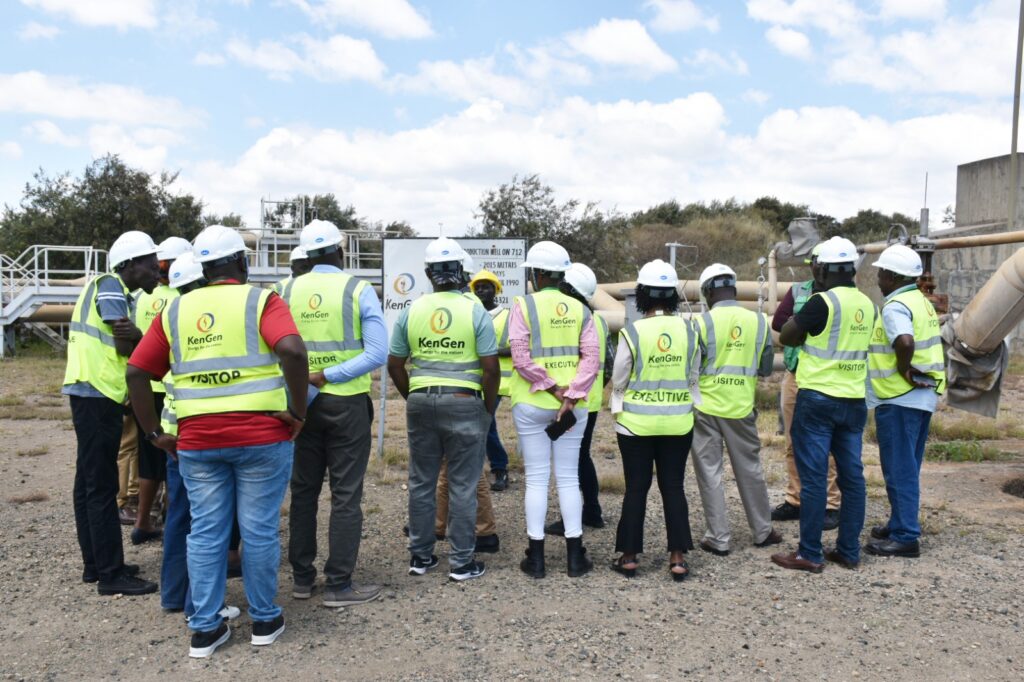
INTERNATIONAL TRAINING ON CARBON MARKET FUNDAMENTALS
COURSE BACKGROUND
As global climate concerns intensify and corporate stakeholders increasingly demand emissions reductions, carbon markets have emerged as a pivotal tool for organizations to responsibly manage their environmental impact. A deep understanding of these markets and how to effectively engage with them is crucial to mitigate the risks associated with ineffective carbon management plans. The complexities of carbon markets, driven by various historical events and policy decisions, necessitate comprehensive education for professionals.
ECAS Institute offers this “Carbon Market Fundamentals” course to provide essential knowledge for navigating this dynamic landscape. The program will begin with a foundational overview, covering the purpose of carbon markets, key terminology, and the historical and policy drivers that have shaped current market dynamics. We will then differentiate between compliance and voluntary markets, illustrating their nuances with practical examples.
The course will guide participants through assessing different types of carbon projects and their characteristics, including the critical metrics used to determine offset quality. The ultimate goal is to equip analysts and management teams with the skills to confidently engage with carbon markets and conduct thorough due diligence, ensuring the integrity and effectiveness of their carbon management strategies.
COURSE OBJECTIVES OF THE TRAINING
Upon successful completion of this course, participants will be able to:
- Define the purpose of carbon markets and carbon credits.
- Explain key concepts and terminology prevalent in carbon markets.
- Determine carbon credit quality, including associated risks and benefits.
- Provide insight into the role of carbon offsets in achieving corporate climate commitments.
- Compare and contrast compliance markets and voluntary markets.
- Assess the value of different project types and their associated implications for carbon offset generation.
WHAT YOU WILL LEARN
This course will help you understand carbon markets and how to responsibly engage with them to reduce the risks of an ineffective carbon management plan. You will learn to:
- Understand the purpose, terminology, history, and policy drivers of carbon markets, and how they differ from carbon taxes.
- Distinguish between compliance and voluntary carbon markets, including their overview, key examples, and market dynamics.
- Analyze various carbon offset project types, their characteristics, and crucial factors like credibility and ratings (Mechanism, Causality, Additionality, Permanence, Cost, and Co-benefits).
- Understand the offset certification process and how to conduct due diligence around project quality and climate commitments.
- Identify where to responsibly buy offsets and manage their lifecycle.
- Recognize current trends and issues in carbon markets, and apply guidelines for responsible engagement.
DURATION AND PROGRAM
This is a structured training course designed to provide comprehensive insights into carbon market fundamentals. The program will combine theoretical explanations with practical insights, case studies, and discussions on market dynamics and project assessment. The detailed program schedule, including specific session timings and learning activities, will be communicated upon registration.
TARGET PARTICIPANTS
This course is designed for professionals seeking to understand and engage with carbon markets effectively. It is particularly relevant for:
- Management teams
- Business analysts
- Management consultants
- Financial analysts of all stripes
- Professionals at both private and public companies involved in sustainability, ESG, or climate commitments.
TRAINING MODULES
The course content is structured into five key modules, progressively building a foundational understanding of carbon markets:
| No | Module | Details | |
| 1. | Carbon Markets Overview |
This module introduces the fundamental concepts of carbon markets, their historical development, and the core terminology required for understanding their function.
Key Topics:
|
|
| 2. | Compliance & Voluntary Markets |
This module distinguishes between the two primary types of carbon markets, exploring their operational mechanisms, regulatory frameworks, and practical examples.
Key Topics:
|
|
| 3. | Projects |
This module focuses on the development and characteristics of carbon offset projects, detailing how their quality and value are assessed.
Key Topics:
|
|
| 4. | Engaging with Carbon Markets |
This module provides practical guidance on how organizations and individuals can effectively and responsibly participate in carbon markets.
Key Topics:
|
|
|
5.
|
Current State & Market Trends |
This concluding module examines the contemporary landscape of carbon markets, including emerging trends, current challenges, and best practices for responsible engagement.
Key Topics:
|
|
TRAINING STYLE
The modules will be taught through PowerPoint presentations, and lectures and will include a case study/field visit, breakout sessions, case studies and other interactive discussion components.
The course will also include a few guest speakers, both in person and via Zoom and other online learning platforms for overseas speakers. This provides useful real-world insights alongside the more theoretical aspects of the course.
The conference faculty shall consist of experienced decision makers, as well as practitioners and representatives from established educational and research institutions active around climate change, engineering and international development. Throughout the course, theoretical presentation of concepts will be moderated and more group discussions and plenary engagements will be optimized. PowerPoint presentations will be made by facilitators and resource persons, to highlight key concepts before embarking on group work.
GENERAL NOTES
- Training manuals and additional reference materials are provided to the participants.
- Upon successful completion of this course, participants will be issued with a certificate.
- We can also do this as a tailor-made course to meet organization-wide needs. Contact us to find out more: info@ecasiafrica.org.
- Payment should be sent to our bank account before the start of training and proof of payment sent to: info@ecasiafrica.org.
ABOUT ECAS INSTITUTE
The ECAS Institute designs and delivers independent and targeted training, research, and consulting services. Our work focusses on climate change and resilience building, carbon markets, renewable energy, nature-based solution, biodiversity conservation, agriculture and food systems, We are located in Nairobi Kenya and work across the African region. We have implemented training and research assignments in Kenya, Tanzania, Uganda, South Sudan, Somalia, Malawi, Rwanda, Congo, and South Africa. Globally, we have supported our partners from the UK, Denmark, Italy, Sweden, Germany, and USA.
